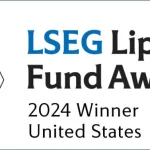(FALLS CHURCH, Va., February 23, 2016) – Azzad Asset Management today announced that it has further magnified the social impact of its flagship mutual fund by adding investments in ethical trade finance deals. These investments may provide returns for investors while helping underserved populations in Asia and Africa obtain reasonable financing to grow businesses and cooperatives.
The Azzad Wise Capital Fund (WISEX) is the first halal fixed-income fund in the United States. By investing primarily in sukuk and community development banks, it can provide an alternative fixed-income investment option that contributes to social development without dealing in interest-based transactions.
Through WISEX, the Virginia-based investment firm is participating in a group of syndicated ethical trade finance deals arranged by the International Islamic Trade Finance Corporation (ITFC), an unaffiliated entity. The ITFC, an organization under the auspices of the Islamic Development Bank Group, is charged with advancing trade and improving the economic conditions of people around the world.
See: Global Community Investing as an Asset Class (YouTube)
The ITFC helps businesses gain better access to trade finance without exorbitant rates of interest or fraud and provides them with the necessary trade-related capacity building tools to help them compete successfully in the global market. Using alternative financing methods based on profit-and-loss sharing, the ITFC has been able to provide favorable terms of trade to entities ranging from fair trade coffee cooperatives in Indonesia to groundnut farmers in Gambia.
“A lack of reasonable trade financing results in huge missed opportunities to leverage the power of trade for growth and development,” said Azzad Vice President and Portfolio Manager Jamal Elbarmil. “Providing affordable trade finance can unlock the trading potential of millions of individuals and small businesses in underserved parts of Asia and Africa. In line with our mission to use investment capital to promote a sustainable economy, we are pleased to participate in this process.”
According to the World Bank, extreme poverty has fallen dramatically in emerging economies over the last 30 years. Between 1981 and 2011, the percentage of people in the developing world living on less than $2 per day fell from 70% to 36%. The United Nations says that trade has been a primary reason for this poverty reduction.
UN Secretary General Ban Ki-Moon called trade finance “the lifeline of trade,” saying that “access to affordable flows of trade financing” is a key step to allow developing countries to “integrate in world trade.” The estimated value of unmet demand for trade finance is between $110 and $120 billion in Africa and over $1 trillion in Asia.
ABOUT AZZAD
Azzad Asset Management, investment advisor to the Azzad Funds and sponsor of the Azzad Ethical Wrap Program, is committed to providing investment services designed to help people enjoy optimum performance without compromising their values. Azzad is a member of the Forum for Sustainable and Responsible Investment and the Accounting and Auditing Organization for Islamic Financial Institutions. The firm, based outside Washington, DC, is a registered investment advisor with the U.S. Securities and Exchange Commission.
– END –
Contact: Investment Communications Director Joshua Brockwell, 703-207-7005 x 109, joshua@azzad.net; Amina Rubin, 703-207-7005 x 120, amina@azzad.net
The Azzad Funds are self-distributed and available by prospectus only. A free copy of the prospectus, which contains information about the Funds’ risks, fees, and objectives, and other important information, is available at www.azzad.com or by calling 888.350.3369.
Opinions expressed are those of the author or fund manager, are subject to change, are not guaranteed and should not be considered recommendations to buy or sell any security and should not be considered investment advice.
Fund holdings and sector allocations are subject to change and are not a recommendation to buy or sell any security. Click here for Azzad Ethical Fund current top 10 holdings. Click here for the Azzad Wise Capital Fund current top 10 holdings.
Past performance does not guarantee future results.
The Azzad Ethical Fund is non-diversified and may invest a larger percentage of its assets in fewer companies exposing it to more volatility and/or market risk than diversified funds. The Fund may not achieve its objective and/or could lose money on your investment in the Fund. Stock markets and investments in individual stocks can decline significantly in response to issuer, market, economic, political, regulatory, geographical, and other conditions. Investments in mid-cap companies can be more volatile than investments in larger companies. Investments in growth companies can be more sensitive to the company’s earnings and more volatile than the stock market in general. Because the portfolio may invest substantial amount of its asset in issuers located in a single country or in a limited number of countries, it may be more volatile that a portfolio that is more geographically diversified. See the prospectus for more details about risks.
Investments in smaller and medium sized companies involve additional risks such as limited liquidity and greater volatility. Investments in debt securities typically decrease in value when interest rates rise. This risk is usually greater for longer-term debt securities. Investments in lower rated and non-rated securities present a great risk of loss to principal and interest than higher rated securities.
The Azzad Wise Capital Fund is non-diversified with a high concentration of securities in the financial sector which can expose the Fund to more volatility and/or market risk than diversified funds. The Fund may not achieve its objective and/or could lose money on your investment in the Fund. The Fund mainly invests in securities issues by foreign entities which expose the Fund to country specific risks such as market, economic, political, regulatory, geographical, and other risks. The Fund intends to invest in certain instruments that may be illiquid. As a result, if the Fund receives large amount of redemptions, the Fund may be forced to sell such illiquid investments at a significant loss to be able to meet such redemption requests. See the prospectus for more details about risks.




